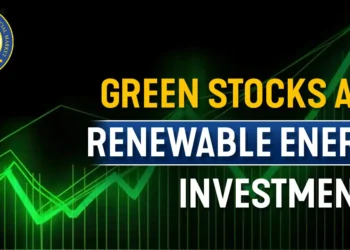Embark on a journey exploring the world of heating & air conditioning services near you, uncovering the intricacies of maintenance, common issues, finding the right service provider, and installation/replacement processes.
Delve into the realm of HVAC systems and discover the key elements that ensure your home or commercial space stays comfortable and efficient all year round.


Importance of Regular HVAC Maintenance
Regular HVAC maintenance is crucial for ensuring that your heating and air conditioning systems operate efficiently and effectively. By scheduling routine maintenance, you can extend the lifespan of your HVAC equipment and prevent costly repairs down the line.Benefits of Scheduled HVAC Maintenance
- Improved Energy Efficiency: Regular maintenance helps your HVAC system run more efficiently, reducing energy consumption and lowering utility bills.
- Enhanced Comfort: Well-maintained HVAC systems provide consistent heating and cooling, creating a comfortable indoor environment for you and your family.
- Extended Lifespan: Proper maintenance can help prolong the life of your heating and air conditioning units, saving you money on premature replacements.
- Prevention of Costly Repairs: By addressing minor issues during routine maintenance, you can avoid major breakdowns that require expensive repairs.
- Better Indoor Air Quality: Clean filters and ducts improve indoor air quality, reducing allergens and pollutants in your home.
Common HVAC Issues
Heating and air conditioning systems can encounter various common problems that may impact their performance. Understanding these issues and their causes can help in troubleshooting and resolving them effectively.Inadequate Heating or Cooling
One of the common issues with HVAC systems is inadequate heating or cooling. This can be caused by several factors, such as:- Dirty or clogged filters restricting airflow
- Thermostat issues leading to incorrect temperature settings
- Leaky ducts causing air loss
Strange Noises or Smells
Another common problem with HVAC systems is the presence of strange noises or smells during operation. This can be attributed to:- Loose or damaged components causing vibrations or rattling noises
- Dust or debris accumulation leading to musty odors
- Electrical issues causing humming or buzzing sounds
Finding the Right HVAC Service Provider
When looking for a reliable heating and air conditioning service near you, there are several factors to consider to ensure you choose the right provider for your needs. It's important to compare different service providers based on their experience, customer reviews, and pricing to make an informed decision. Additionally, evaluating the credibility and expertise of HVAC companies is crucial to guarantee quality service and customer satisfaction.Factors to Consider When Looking for a Reliable HVAC Service Provider
- Experience: Look for a company with a proven track record in the HVAC industry. Experienced technicians are more likely to provide efficient and effective solutions to your heating and cooling needs.
- Customer Reviews: Check online reviews and testimonials from previous customers to gauge the reputation of the HVAC service provider. Positive reviews are a good indication of reliable service.
- Pricing: While cost is an important factor, it should not be the sole determining factor when choosing an HVAC service provider. Compare prices from different companies and consider the value you will receive for the services offered.
- Credentials and Certifications: Ensure that the HVAC company is licensed, bonded, and insured. This guarantees that they meet industry standards and regulations, providing you with peace of mind.
- Availability and Response Time: Consider the availability of the HVAC service provider and their response time in case of emergencies. A company that offers 24/7 service can be beneficial, especially during unexpected breakdowns.
HVAC Installation and Replacement
When it comes to HVAC systems, proper installation and timely replacement are essential to ensure optimal performance and energy efficiency. Let's delve into the process of installing a new HVAC system and the signs that indicate it's time for a replacement.Installation Process
Installing a new HVAC system involves several key steps to ensure it functions correctly and efficiently:- Assessment: A professional HVAC technician will assess your home or commercial space to determine the appropriate system size and capacity.
- Equipment Selection: Based on the assessment, the technician will recommend the right HVAC system that meets your efficiency requirements and budget.
- Installation: The new system will be installed, including ductwork, wiring, and any necessary components to ensure proper functionality.
- Testing: After installation, the system will be tested to ensure it operates efficiently and effectively in heating or cooling your space.
Signs for Replacement
Knowing when to replace your existing HVAC system is crucial to avoid breakdowns and inefficiencies. Look out for these signs:- Age: HVAC systems typically last 10-15 years, so if your system is older, it may be time for a replacement.
- Increased Energy Bills: Rising energy costs could indicate that your system is no longer operating efficiently.
- Frequent Repairs: If you find yourself constantly repairing your HVAC system, it may be more cost-effective to replace it.
- Poor Air Quality: If you notice dust, mold, or odors coming from your vents, it could be a sign that your system is failing.
Choosing the Right System
When selecting a new HVAC system, consider the following factors:- Efficiency: Choose a system with a high SEER (Seasonal Energy Efficiency Ratio) rating for energy savings.
- Size: Ensure the system is the right size for your space to avoid overworking or underperforming.
- Budget: Balance cost with quality to find a system that fits your financial constraints without compromising performance.














